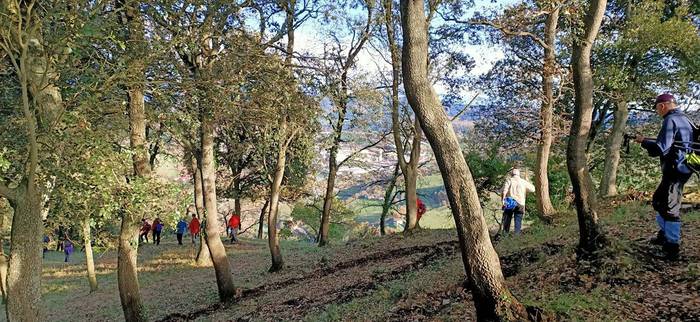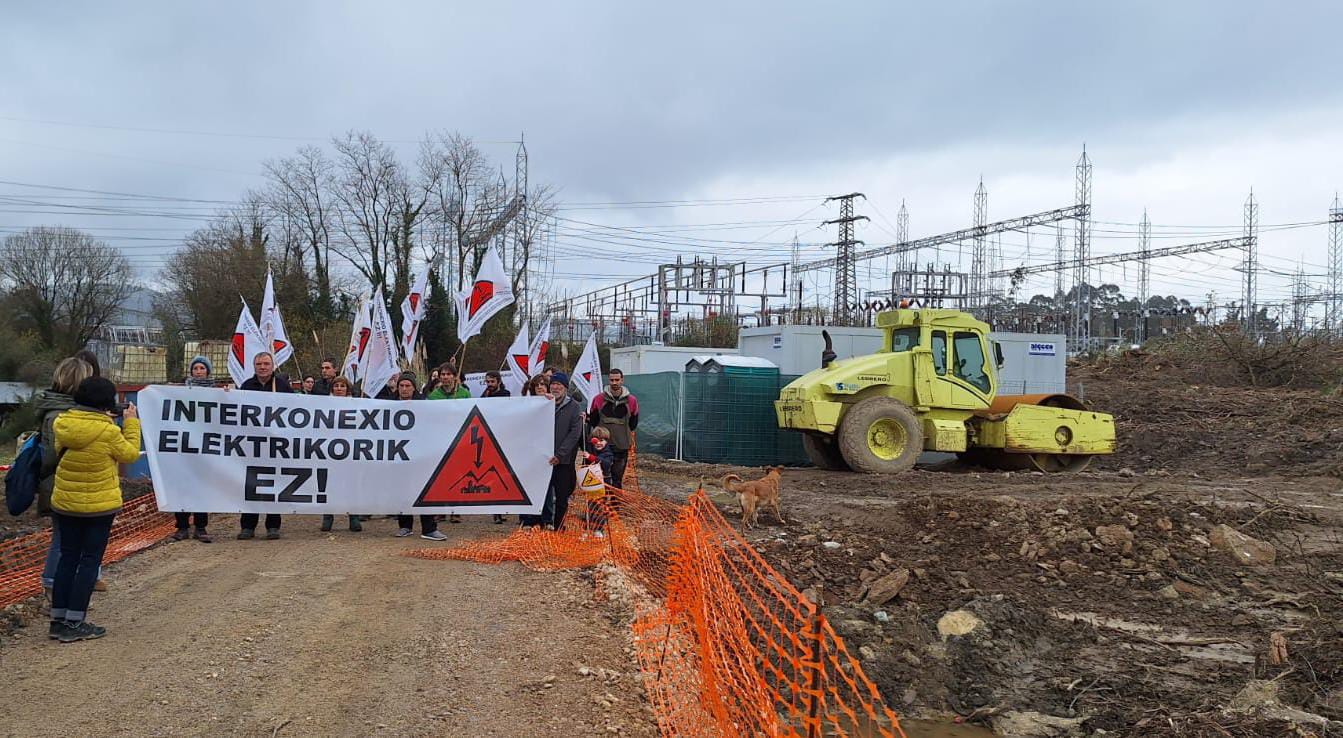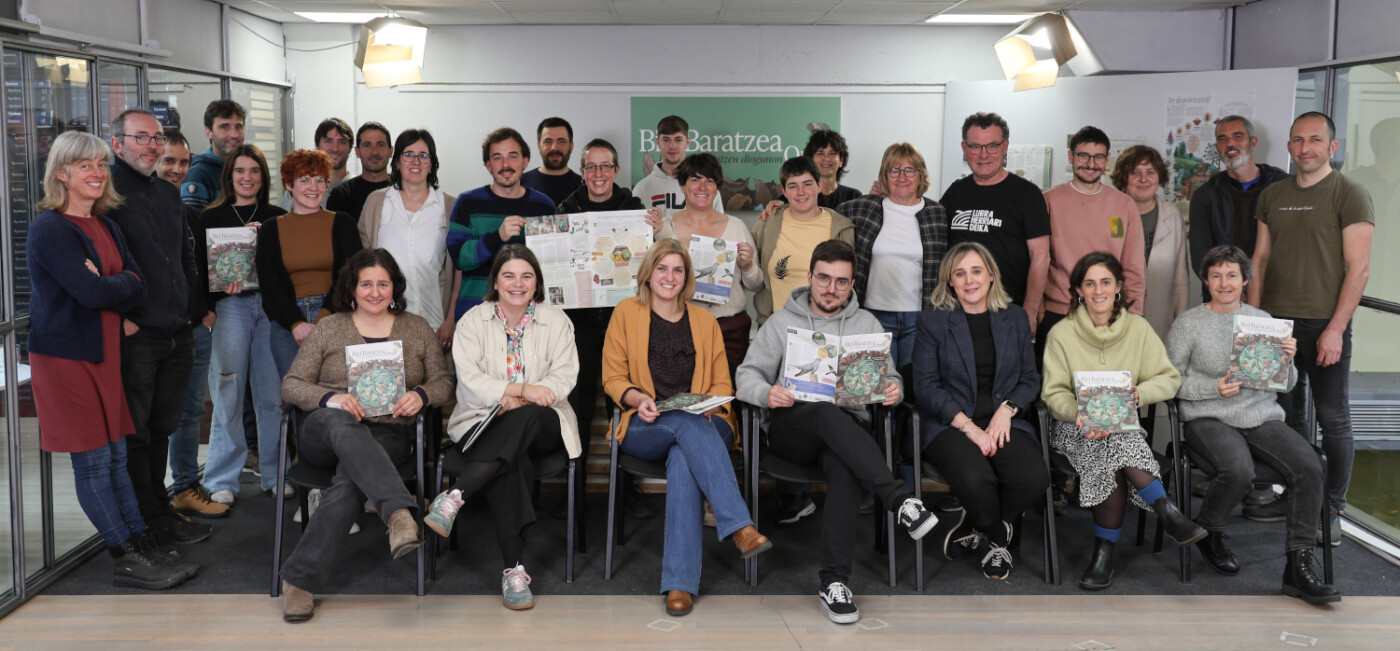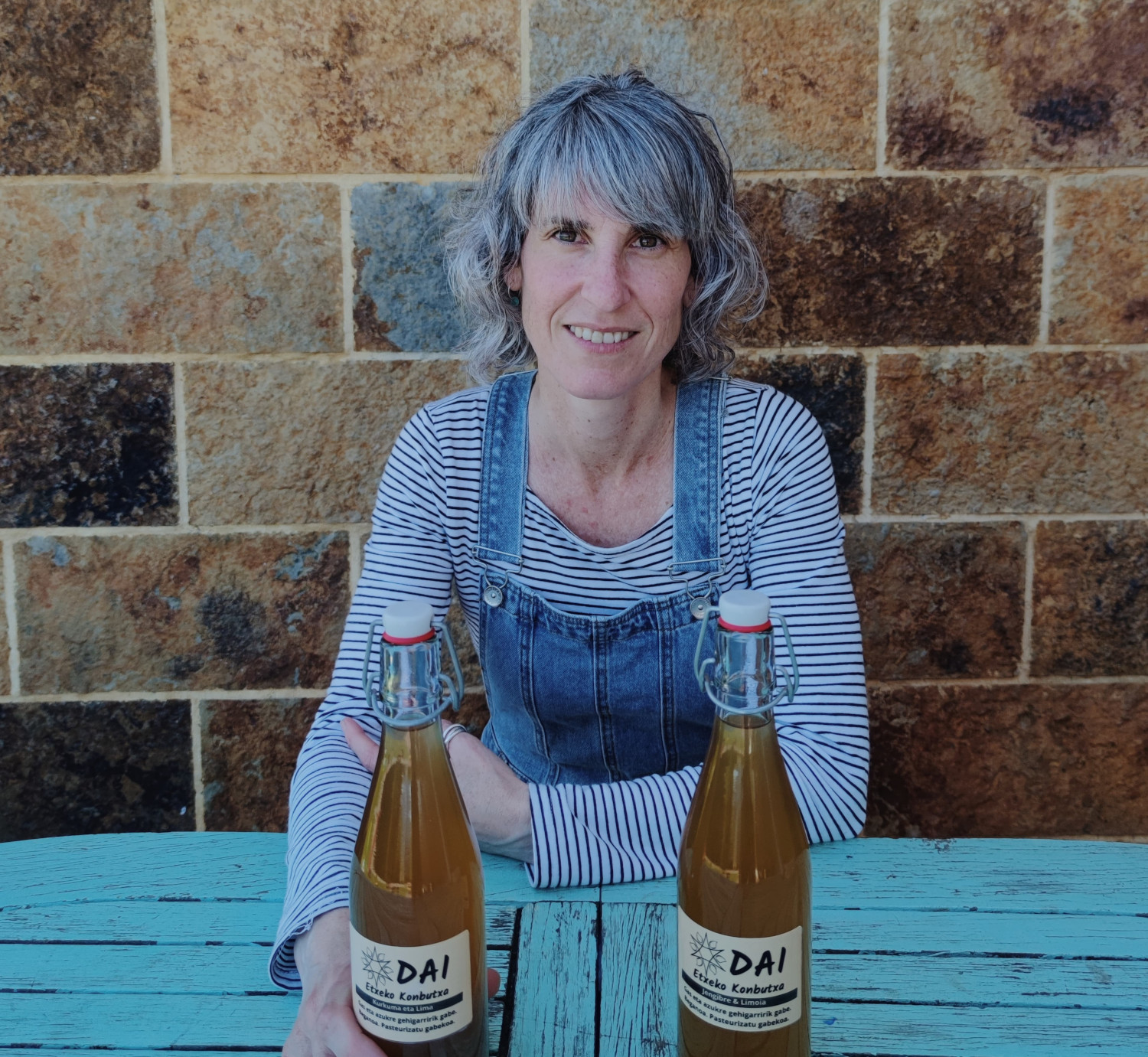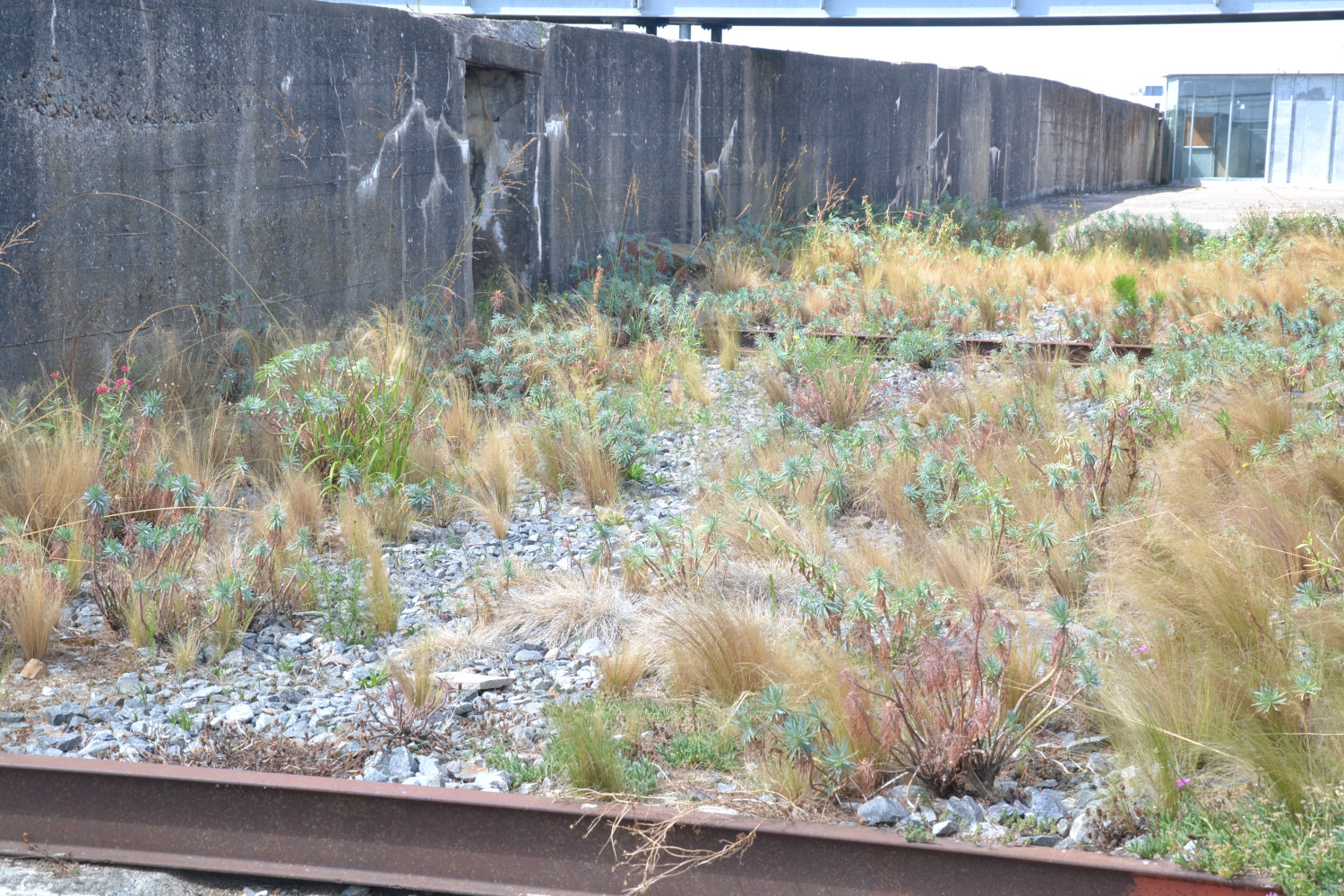You can live normally without plastic.
- “Plastic is wonderful! That cannot be denied. The problem is that we do not have the capacity to manage all the plastic residue that we generate and is harmful to health.” Therefore, Javier Barrios and Marion de La Porte, cooperativists of Sinplastic, have decided to live without plastic and not have to worry about it. How? Looking for alternatives and making available to customers: kitchen utensils, personal and domestic hygiene, containers to bring food... It is a work that is being done little by little, as “it’s hard to find things without plastic today”, but they already have over 500 products for sale on their website: www.sinplastico.com. The shop is in Bilbao.
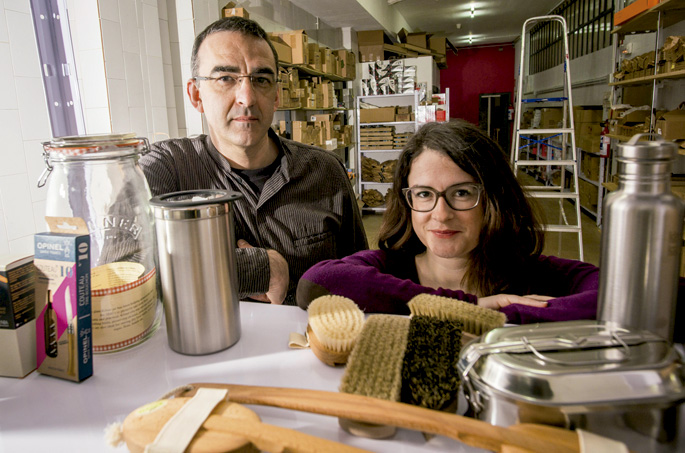
Have you ever counted the plastic devices you have at home? What about the ones you use every day in the kitchen? How many of them are long-term and single-use? Can you live normally without plastic? Curiosity led Javier Barrios to look for alternatives without plastic. When I was still in Equo, “I saw that there were shops selling makeup, food, clothing and other organic products, but not household tool shops.”
Searching for and searching for the model he found in Canada, De La Porte launched the Sinplastic initiative. Still remember the day you searched for a glass bottle for your child: “I didn’t find it in the pharmacies here, but I saw that the bottle brands that were here for sale were sold in France and Britain!”, a result of the diversity of regulations. Hormonal contaminant A bisphenol (BPA), used for plastic manufacturing (see number 2504 of ARGIA), was banned in Europe in 2011 in baby bottles; in Denmark, Austria and Belgium it is banned in other children’s products; in the French State, in 2015, it was banned in all food packaging. In the case of Spain, the ban is currently limited to plastic bottles.
Principle of care
It is not clear how much the maximum proportion of BPA should be limited to avoid health damage, and Europe applied the precautionary principle in the case of baby bottles; it was banned, in case of possible harm. The European Food Safety Authority has set a priori the limit of: 0.005 mg/day/kg weight.
“The consumption limit applies to a single product and there is the trap,” says Marion de La Porte: “Every day we have many plastic products around us and far exceed the limit set by the standard. That is why the precautionary principle is important, as the current rule does not take into account the accumulation of substances or their reaction”. According to a recent study by six U.S. non-governmental organizations, for example, 67% of respondents have BPA.
Educating producers
The information dissemination website was launched in September 2014 and the point of sale was launched in November. As we have been told, the aim is to raise public awareness and to ensure that people take steps to protect themselves. “Our effort to achieve quality and healthy products, not only in money, is useless, as we contaminate these foods by vacuum packing them, cooking them in plastic packaging or storing them in tuppers and the like.”
Marion de La Porte
and Javier Barrios:
“Our effort to achieve quality and healthy products is useless because we contaminate these foods by packing them vacuum, cooking them in plastic containers and keeping them in similar ones”
All of this is said carefully, because it's not about creating alarm. “It’s not about frightening people, it’s about informing them to make decisions by being aware,” said De La Porte. As we have been told, the biggest problem with all plastics is the lack of information.
"There are many types of plastics and each has a composition, a composition that hides. That’s why our commitment to our customers is transparency about all the tools we collect in the store,” explains Barrios. “We want to make a responsible sale and we make a filter between producers and buyers.” To do so, distributors pre-test the products they send to them. It may take months to offer the product to customers. Direct contact with producers is worked to correctly identify the components of the products, thus avoiding any type of plastic footprint.
In this work they have found sartenes from Berriz, stainless steel bags in Jundiz, sponges in Galicia, cosmetics in Bilbao, stainless water bottles in the United States. US, Palencia brushes, menstrual cups in Almeria, shopping bags in Great Britain, made exclusively with natural yarns and inks, dental floss in Germany...
“In addition to betting on natural products, we propose that packaging should also be clean,” says Barrios. “On more than one occasion we had to notify the producers because what they have sent us had a plastic handle or a natural hair wood comb that they sent us wrapped in individual plastic bags!” Awareness therefore focuses on customers and producers in Sinplásticon. “There are alternatives and we look for them and add them to make them available to the customer. So, don’t be pessimistic, there are alternatives!”
They say it's easier than you think to reduce plastic consumption. In fact, although it is more difficult to replace long-term plastic appliances, we use a lot of single-use stuff every day. As we have been told, “consuming is voting; and we have chosen another way to consume.” For this purpose they propose to make our commitment #yovivosinplastico: 1) commitment to the environment, reducing the consumption of plastic bags; 2) commitment to health, using glass or steel containers; 3) commitment to future generations, choosing ecological materials; 4) commitment to myself, developing every month an action to live without plastic. Here's the Sinplastic project.
Lehengai anitzekin papera egitea dute urteroko erronka Tolosako Lanbide Heziketako Institutuko kimika industrialeko ikasleek: platano azalekin, orburuekin, lastoarekin, iratzearekin nahiz bakero zaharrekin egin dituzte probak azken urteotan. Aurtengoan, pilota eskoletan kiloka... [+]
Today’s Venice is built on an archipelago of 118 islands. These islands are connected by 455 bridges. The city is based on mud rather than Lura. Millions of trees in the area were cut down from the 9th century onwards to build piles and cement the city. Years have passed and... [+]









